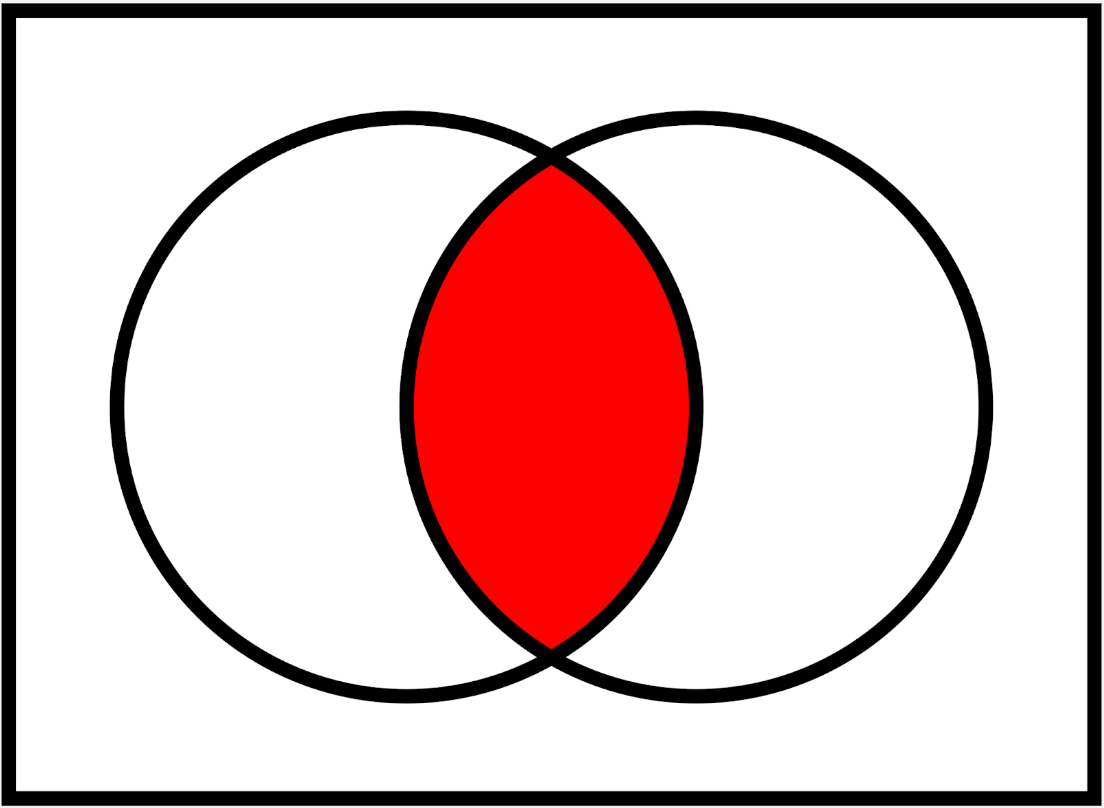{1, 2, 3, 4, 5}sets (class slides)
CSc 110 - Sets
Announcements
- If you submitted your solution to short project 09 before today, check gradescope – there was a special character that was removed for the test file
- Go to lab to work on short projects – I will instruct TAs not to help students with short projects during office hours
- Midterm 3 on April 24 – up to module 14
- Final exam on May 3, 6pm to 8pm, in ENR2 120N
Set methods
.add(value)adds an element to the set.discard(value)discards the specified value.union(set2)returns a set with the all elements in both sets.intersection(set2)returns a set with the all elements in common
union

union
intersection

intersection
Evaluate the code
Evaluate the code
presences = {"Anna", "Beatrice", "Claude"}
absences = {"Elvin", "Harley"}
absences.add("Becca")
presences.union(absences){'Anna', 'Beatrice', 'Becca', 'Claude', 'Elvin', 'Harley'}Write a function
- Its name is
common_values - It takes two sets are arguments
- It returns
Falseif the sets have no elements in common,Trueotherwise
Write a function – solution
Write a function
- Function name is
discard_elements - It takes two sets as argument:
set_1andset_2 - It mutates the first set (
set_1) removing all elements it has in common withset_2
Write a function – solution
def discard_elements(set_1, set_2):
to_remove = set_1.intersection(set_2)
for value in to_remove:
set_1.discard(value)
if __name__ == "__main__":
test_set = {1, 2, 3, 4}
discard_elements(test_set, {2})
assert test_set == {1, 3, 4}
print(test_set){1, 3, 4}